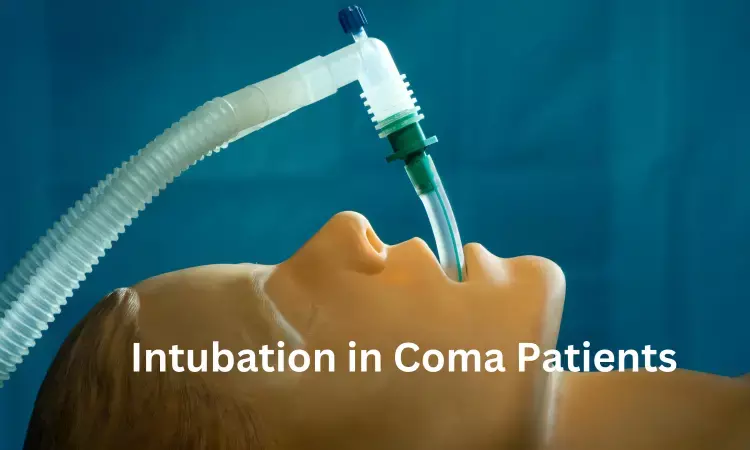- Home
- Medical news & Guidelines
- Anesthesiology
- Cardiology and CTVS
- Critical Care
- Dentistry
- Dermatology
- Diabetes and Endocrinology
- ENT
- Gastroenterology
- Medicine
- Nephrology
- Neurology
- Obstretics-Gynaecology
- Oncology
- Ophthalmology
- Orthopaedics
- Pediatrics-Neonatology
- Psychiatry
- Pulmonology
- Radiology
- Surgery
- Urology
- Laboratory Medicine
- Diet
- Nursing
- Paramedical
- Physiotherapy
- Health news
- Fact Check
- Bone Health Fact Check
- Brain Health Fact Check
- Cancer Related Fact Check
- Child Care Fact Check
- Dental and oral health fact check
- Diabetes and metabolic health fact check
- Diet and Nutrition Fact Check
- Eye and ENT Care Fact Check
- Fitness fact check
- Gut health fact check
- Heart health fact check
- Kidney health fact check
- Medical education fact check
- Men's health fact check
- Respiratory fact check
- Skin and hair care fact check
- Vaccine and Immunization fact check
- Women's health fact check
- AYUSH
- State News
- Andaman and Nicobar Islands
- Andhra Pradesh
- Arunachal Pradesh
- Assam
- Bihar
- Chandigarh
- Chattisgarh
- Dadra and Nagar Haveli
- Daman and Diu
- Delhi
- Goa
- Gujarat
- Haryana
- Himachal Pradesh
- Jammu & Kashmir
- Jharkhand
- Karnataka
- Kerala
- Ladakh
- Lakshadweep
- Madhya Pradesh
- Maharashtra
- Manipur
- Meghalaya
- Mizoram
- Nagaland
- Odisha
- Puducherry
- Punjab
- Rajasthan
- Sikkim
- Tamil Nadu
- Telangana
- Tripura
- Uttar Pradesh
- Uttrakhand
- West Bengal
- Medical Education
- Industry
Withholding intubation clinically beneficial among comatose patients with suspected acute poisoning: JAMA

Coma or Comatose stage is characterized as a lengthy deep state of unconsciousness. People in a state of coma are alive but are unable to move or be aware of or respond to their surroundings. They lose their thinking abilities but retain non-cognitive function and normal sleep patterns. Acute poisoning caused by alcohol, drugs, or medication is a common non traumatic reason for a decreased level of consciousness and is often associated with a high rate of intubation.
Comatose patients with suspected acute poisoning, a conservative strategy of withholding intubation was associated with a greater clinical benefit for the composite end point of in-hospital death, length of intensive care unit stay, and length of hospital stay according to a study published in JAMA Network.
Researchers conducted a multicenter, randomized trial in 20 emergency departments and 1 intensive care unit (ICU) that included comatose patients with suspected acute poisoning and a Glasgow Coma Scale score less than 9 in France. Patients were randomized to undergo conservative airway strategy of intubation withholding vs routine practice. The primary outcome was a hierarchical composite end point of in-hospital death, length of ICU stay, and length of hospital stay. Key secondary outcomes included adverse events resulting from intubation as well as pneumonia within 48 hours.
The key findings of the study are
• Out of 225 patients (mean age, 33 years; 38% female), 116 (16%) were in the intervention group and 109 (58%) in the control group.
• No patients died during the in-hospital stay. There was a significant clinical benefit for the primary end point in the intervention group, with a win ratio of 1.85 (95% CI, 1.33 to 2.58).
• In the intervention group, there was a lower proportion with any adverse event (6% vs 14.7%; absolute risk difference, 8.6% [95% CI, −16.6% to −0.7%]) compared with the control group, and pneumonia occurred in 8 (6.9%) and 16 (14.7%) patients, respectively (absolute risk difference, −7.8% [95% CI, −15.9% to 0.3%]).
Researchers concluded that “Among comatose patients with suspected acute poisoning, a conservative strategy of withholding intubation was associated with a greater clinical benefit for the composite end point of in-hospital death, length of ICU stay, and length of hospital stay.”
Reference: Freund Y, Viglino D, Cachanado M, et al. Effect of Noninvasive Airway Management of Comatose Patients With Acute Poisoning: A Randomized Clinical Trial. JAMA. Published online November 29, 2023. doi:10.1001/jama.2023.24391.
MSc. Neuroscience
Niveditha Subramani a MSc. Neuroscience (Faculty of Medicine) graduate from University of Madras, Chennai. Ambitious in Neuro research having worked in motor diseases and neuron apoptosis is interested in more of new upcoming research and their advancement in field of medicine. She has an engrossed skill towards writing and her roles at Medical dialogue include Sr. Content writer. Her news covers new discoveries and updates in field of medicine. She can be reached at editorial@medicaldialogues.in
Dr Kamal Kant Kohli-MBBS, DTCD- a chest specialist with more than 30 years of practice and a flair for writing clinical articles, Dr Kamal Kant Kohli joined Medical Dialogues as a Chief Editor of Medical News. Besides writing articles, as an editor, he proofreads and verifies all the medical content published on Medical Dialogues including those coming from journals, studies,medical conferences,guidelines etc. Email: drkohli@medicaldialogues.in. Contact no. 011-43720751


